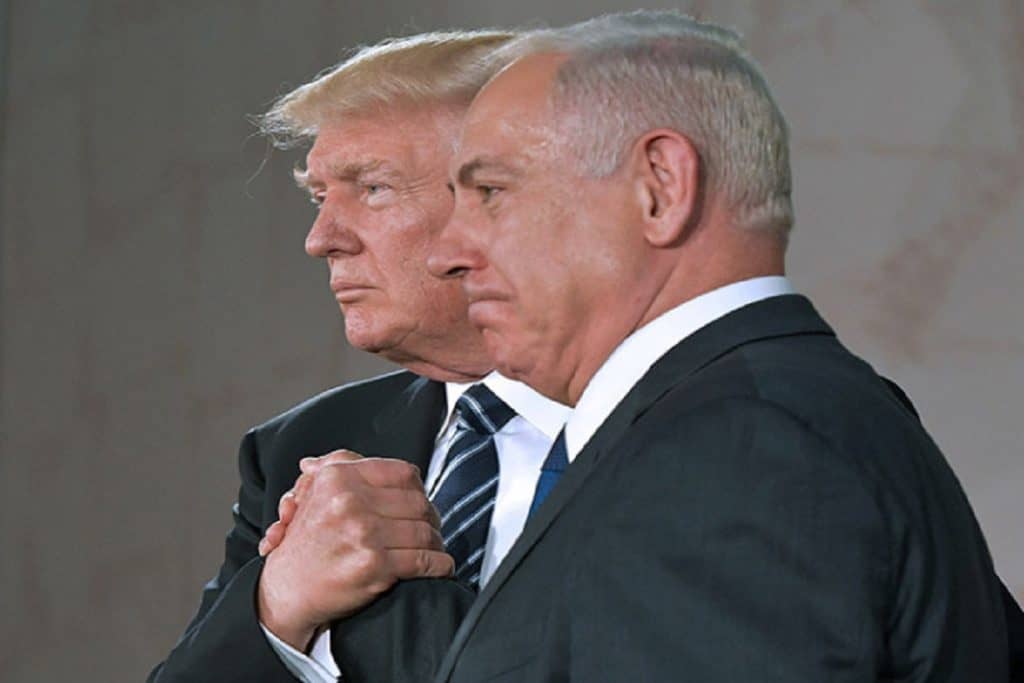By Denis Korkodinov
Since the election of Donald Trump as head of state, Washington has taken the position of Israeli Prime Minister Benjamin Netanyahu regarding Palestine. As a result of this, the Palestinians have almost completely lost the hope that their interests will ever be taken into account in the international arena.
The end of such a policy in 2019 was the US withdrawal from UNESCO under the pretext that this organization, allegedly, does not show much interest in supporting Israel. Similarly, the White House administration sent a signal that it would not tolerate any criticism of Israeli politics. Meanwhile, the failure of the head of the Israeli government could be a symbol that Tel Aviv will change its attitude towards the Palestinian problem.
The process of pressure by Donald Trump on Palestine began in February 2019, when the United States launched the so-called “deal of the century”, which actually confirmed Tel Aviv’s rights to Palestinian lands. Subsequently, the United States opened its embassy in Jerusalem, thereby reducing the status of the American diplomatic mission in Palestine.
Not limited to this, the White House administration excluded from its official reports regarding the Arab-Israeli conflict the term “occupied territories”, which was regarded by the Palestinians as an act of betrayal. U.S. Secretary of State Mike Pompeo, speaking to reporters on November 18, 2019, emphasized that Jewish settlements in the West Bank are fully compliant with international law.
Meanwhile, under pressure from circumstances, Washington was forced to abandon the plan proposed by Jared Kushner. Initially, this plan was designed to strengthen the position of Benjamin Netanyahu during the election campaign in Israel. However, the internal political confusion associated with the inability to form a coalition government, and the resulting third round of elections, showed that the “deal of the century” makes no sense. For this reason, they gradually forgot about it.
However, US pressure on Palestine continued. So, on July 23, 2019, the US Congress condemned the Palestinian Boycott Movement, which had international support. This decision was made under pressure from Israel, which feared that the movement could gain global reach. In addition, Tel Aviv closed all educational institutions operating for Palestinian children in Jerusalem, and also expelled representatives of peacekeeping missions from the city of Hebron, controlled by Palestine.
As for the status of Jerusalem, it seems that this issue has long been closed by both the Israeli leadership and the White House administration. Indirect evidence of this is that in March 2019, Benjamin Netanyahu, as part of the official delegation and with the participation of U.S. Secretary of State Mike Pompeo, visited the landmark site for the Palestinians at the Western Wall. Thus, Tel Aviv and Washington pointedly emphasized that, regardless of the views of the Palestinians, the entire territory of Jerusalem is part of Israel.
Meanwhile, Benjamin Netanyahu’s tough policy towards Palestine did not bring him victory in the elections and created the ground for an internal political crisis. From this we can conclude that voters are tired of anti-Palestinian rhetoric and do not want the conflict to escalate.
The first time Benjamin Netanyahu was defeated by Avigdor Lieberman, the second time by Benny Ganz, the fundamental difference between them and the Israeli Prime Minister is that they proceed from the need for dialogue with Palestine, albeit in a limited format. Perhaps this is a symbol of the fact that in Israel begins an era of rethinking their attitude to the Palestinian problem.
(The opinions expressed in this article are solely those of the author and do not necessarily reflect the views of World Geostrategic Insights)







